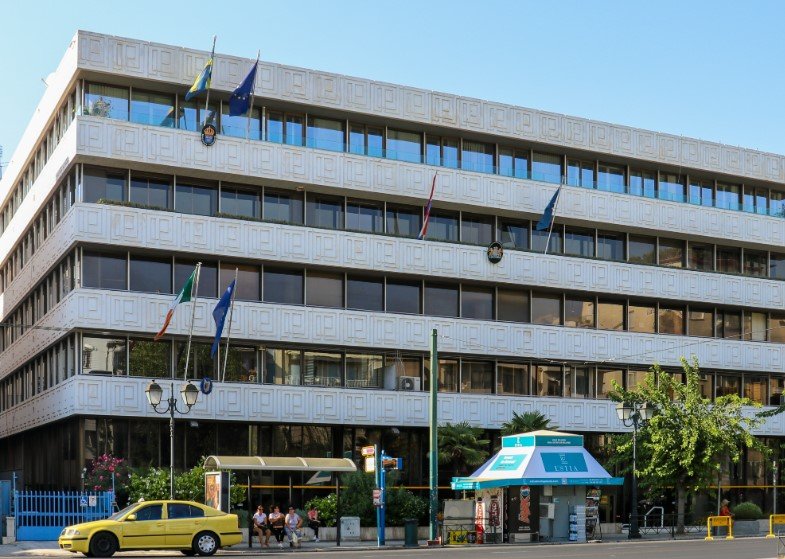The United Kingdom has shut down its main embassy building in Cairo temporarily after Egyptian officials took away security barriers outside it. This move comes amid a heated dispute sparked by the arrest of a pro-Egyptian government activist in London last week, which Egypt sees as a failure to protect its diplomatic site.
Background of the Diplomatic Tension
Tensions between the UK and Egypt have been building over recent protests linked to the Gaza conflict. Pro-Palestinian demonstrators have targeted Egyptian embassies in Europe, accusing Cairo of not doing enough to help Gaza by keeping the Rafah crossing closed. This has led to bold actions, like activists locking embassy gates in places such as the Netherlands.
In London, similar protests happened outside the Egyptian embassy. Reports show that demonstrators chained the doors, protesting Egypt’s role in the ongoing Gaza crisis. These events have fueled anger in Egypt, where many feel the UK did not step in to stop the actions against their embassy.
Egyptian leaders have pointed to the Vienna Convention, which requires host countries to protect foreign diplomatic missions. They argue the UK fell short in this duty during the London incident.
The Activist’s Arrest in London
The spark for the current row was the arrest of Ahmed Abdelkader, a young Egyptian man known for supporting his government’s stance. He was detained by London police while trying to defend the Egyptian embassy from protesters.

Witnesses say Abdelkader confronted the demonstrators who were blocking the entrance. Police stepped in and arrested him, but he was released later without charges. This event quickly spread on social media, drawing sharp criticism from Egyptian officials and citizens.
Egypt’s Foreign Minister Badr Abdelatty reached out to UK officials, demanding answers. He called the arrest a sign of double standards, especially since protesters who chained the embassy faced no action.
Public reaction in Egypt has been strong. Political figures and online users have called for payback, including pulling security from the UK embassy in Cairo.
- Key details of the London incident:
- Date: Last week in August 2025
- Location: Outside Egyptian embassy in London
- Involved: Pro-Gaza protesters and Ahmed Abdelkader
- Outcome: Abdelkader arrested and released; no charges filed
Egypt’s Response and Barrier Removal
In what many see as direct retaliation, Egyptian authorities removed large concrete barriers around the UK embassy in Cairo’s Garden City area. These barriers had stood for decades to protect the site from threats, but locals often complained they caused traffic jams.
The removal happened suddenly, leaving the embassy exposed. UK officials cited safety concerns for staff as the reason for the temporary closure. The embassy still handles some services remotely, but the main building stays shut while they assess the risks.
This is not the first time the UK embassy in Cairo has closed. It happened in 2013 and 2014 due to security issues tied to political unrest in Egypt. Analysts say this latest closure highlights how Gaza-related protests are straining ties between the two nations.
Egypt has defended its actions by stressing the need for equal treatment under international law. Officials have hinted at more steps if the UK does not address their complaints.
Impact on UK-Egypt Relations
The row has broader effects on diplomacy and travel. The UK Foreign Office has updated its advice for Egypt, warning against trips to certain areas but not Cairo itself. They provided emergency contact numbers for citizens needing help.
Experts worry this could hurt trade and security cooperation. The UK and Egypt work together on issues like counter-terrorism and migration. Recent data from 2025 shows bilateral trade reached over 3 billion pounds last year, focused on energy and tourism.
| Aspect | UK Perspective | Egypt Perspective |
|---|---|---|
| Security Barriers | Essential for staff safety | Cause traffic issues; removed as retaliation |
| Activist Arrest | Police action to maintain order | Seen as unfair targeting of pro-government figure |
| Diplomatic Ties | Seeking talks to resolve | Demanding reciprocity under Vienna Convention |
| Public Reaction | Limited media coverage | Widespread calls for action on social media |
This table shows the differing views, which could lead to longer-term strain if not fixed soon.
On the ground, the closure affects visa services and consular help for thousands of Brits in Egypt. Local businesses near the embassy report less foot traffic, adding economic ripples.
Broader Context of Protests and Global Reactions
Protests against Egypt’s Gaza policy have popped up worldwide. In Europe, activists have locked embassy gates multiple times, calling for aid to flow through Rafah. A leaked call reportedly showed Egypt’s foreign minister urging staff to handle protesters firmly.
These actions tie into the larger Israel-Gaza conflict, now in its second year as of 2025. Egypt plays a key role as a mediator but faces blame for border closures that block humanitarian aid. International groups like the UN have urged all sides to ease tensions.
Similar diplomatic spats have happened before. For instance, in 2024, Nigeria faced protests at its Cairo embassy over internal issues, leading to arrests. This pattern shows how global conflicts can spill into embassy security worldwide.
The UK has faced its own protests at home, with large marches for Gaza drawing crowds. Balancing free speech and diplomatic protection remains a challenge for governments.
What Happens Next
Both sides are talking to resolve the issue. The UK wants the barriers back for safety, while Egypt seeks assurances on protecting its London embassy. Analysts predict a quick fix, given their shared interests.
If talks fail, it could lead to more closures or reduced diplomatic staff. For now, the focus is on staff safety and upholding international rules.
This event reminds us how local actions can trigger global fallout. Readers, share your thoughts on this diplomatic row in the comments below. Did the UK handle the protest right? Spread the word by sharing this article with friends to keep the conversation going.
